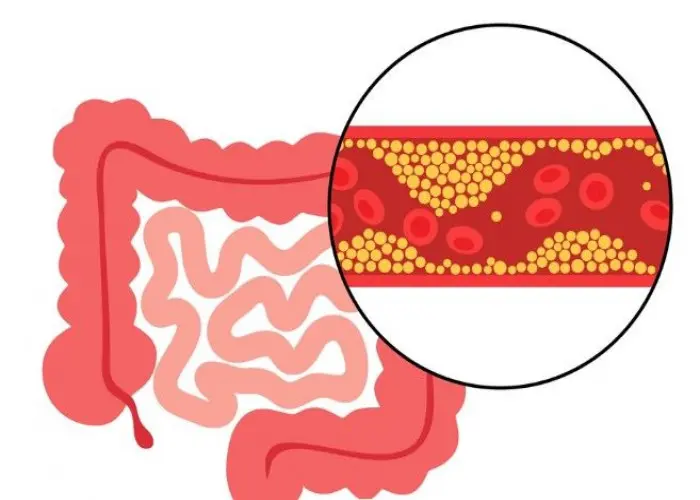 Welcome
Welcome
“May all be happy, may all be healed, may all be at peace and may no one ever suffer."
Intestinal ischemia

Intestinal ischemia refers to a condition in which blood flow to the intestines is reduced or completely blocked, leading to damage or death of intestinal tissue. This can occur in either the small intestine or large intestine, and may be acute (sudden onset) or chronic (gradual onset).
There are several causes of intestinal ischemia, including blood clots or other blockages in the blood vessels that supply the intestines, narrowing or inflammation of these blood vessels (such as in conditions like atherosclerosis or vasculitis), low blood pressure or shock, or surgery that affects blood flow to the intestines.
Symptoms of intestinal ischemia may include severe abdominal pain, nausea and vomiting, diarrhea or bloody stools, and fever. In acute cases, the symptoms may develop suddenly and be severe, while in chronic cases, the symptoms may develop gradually over time.
Diagnosis of intestinal ischemia may involve a comprehensive medical evaluation, including a physical examination, imaging tests such as CT scan or angiography, and possibly a biopsy of intestinal tissue. Treatment for intestinal ischemia may depend on the underlying cause and severity of the condition, and may include medications to improve blood flow, surgery to remove dead or damaged tissue, or procedures to open or repair blood vessels.
Preventing intestinal ischemia may involve addressing underlying risk factors such as high blood pressure or high cholesterol, maintaining a healthy weight, and avoiding smoking or other behaviors that may increase the risk of cardiovascular disease. It is important for individuals with symptoms of intestinal ischemia to seek immediate medical attention, as this condition can be life-threatening if left untreated.
Research Papers
Disease Signs and Symptoms
- Abdomen pain
- Abdominal pain that gets progressively worse over weeks or months
- Abdominal cramps or fullness, usually within 30 minutes after eating, and lasting one to three hours
- Mental confusion in older adults
- An urgent need to have a bowel movement
- Abdomen bloating
- Nausea or vomiting
- Diarrhea
- Abdomen cramps
- Confusion (Hallucinations)
- Blood in stool
- Abdominal tenderness
- Frequent bowel movements
- Crampy abdominal pain that comes and goes
Disease Causes
Intestinal ischemia
Intestinal ischemia occurs when the blood flow through the major arteries that supply blood to your intestines slows or stops. The condition has many potential causes, including a blockage in an artery caused by a blood clot, or a narrowing of an artery due to buildup of deposits, such as cholesterol. Blockages also can occur in veins, but they're less common.
Intestinal ischemia is often divided into categories:
Colon ischemia (ischemic colitis)
This type of intestinal ischemia, which is the most common, occurs when blood flow to the colon is slowed. The cause of diminished blood flow to the colon isn't always clear, but a number of conditions can make you more vulnerable to colon ischemia:
- Dangerously low blood pressure (hypotension) associated with heart failure, major surgery, trauma or shock
- A blood clot in an artery supplying the colon
- Twisting of the bowel (volvulus) or trapping of intestinal contents within a hernia
- Excessive bowel enlargement from bowel obstruction caused by scar tissue or a tumor
- Other medical disorders that affect your blood, such as inflammation of your blood vessels (vasculitis), lupus or sickle cell anemia
- Medications that constrict blood vessels, such as some used to treat heart disease and migraine
- Hormonal medications, such as birth control pills
- Cocaine or methamphetamine use
- Vigorous exercise, such as long-distance running
Acute mesenteric ischemia
This type of intestinal ischemia usually affects the small intestine. It has an abrupt onset and may be due to:
- A blood clot (embolus) that dislodges from your heart and travels through your bloodstream to block an artery, usually the superior mesenteric artery, which supplies oxygen-rich blood to your intestines. This is the most common cause of acute mesenteric artery ischemia and can be brought on by congestive heart failure, an irregular heartbeat (arrhythmia) or a heart attack.
- A blockage that develops within one of the main intestinal arteries and slows or stops blood flow, often as a result of fatty deposits (atherosclerosis) building up on the wall of an artery. This type of sudden ischemia tends to occur in people with chronic intestinal ischemia.
- Impaired blood flow resulting from low blood pressure due to shock, heart failure, certain medications or chronic kidney failure. This is more common in people who have other serious illnesses and who have some degree of atherosclerosis. This type of acute mesenteric ischemia is often referred to as nonocclusive ischemia, which means that it's not due to a blockage in the artery.
Chronic mesenteric ischemia
Chronic mesenteric ischemia, also known as intestinal angina, results from the buildup of fatty deposits on an artery wall (atherosclerosis). The disease process is generally gradual, and you may not require treatment until at least two of the three major arteries supplying your intestines become severely narrowed or completely obstructed.
A potentially dangerous complication of chronic mesenteric ischemia is the development of a blood clot within a diseased artery, causing blood flow to be suddenly blocked (acute mesenteric ischemia).
Ischemia that occurs when blood can't leave your intestines
A blood clot can develop in a vein draining deoxygenated blood from your intestines. When the vein is blocked, blood backs up in the intestines, causing swelling and bleeding. This is called mesenteric venous thrombosis, and it may result from:
- Acute or chronic inflammation of your pancreas (pancreatitis)
- Abdominal infection
- Cancers of the digestive system
- Bowel diseases, such as ulcerative colitis, Crohn's disease or diverticulitis
- Disorders that make your blood more prone to clotting (hypercoagulation disorders), such as an inherited clotting disorder
- Medications such as estrogen that can increase clotting risk
- Abdominal injuries
Disease Prevents
Disease Treatments
Treatment of intestinal ischemia involves restoring the blood supply to your digestive tract. Options vary depending on the cause and severity of your condition.
Colon ischemia
Your doctor may recommend antibiotics to treat or prevent infections. Treating any underlying medical condition, such as congestive heart failure or an irregular heartbeat, is also important. Similarly, you'll need to stop medications that constrict your blood vessels, such as migraine drugs, hormone medications and some heart drugs. Sometimes, colon ischemia heals on its own.
If your colon has been damaged, you may need surgery to remove the dead tissue. Or you may need surgery to bypass a blockage in one of your intestinal arteries.
Acute mesenteric artery ischemia
Surgery may be necessary to remove a blood clot, to bypass an artery blockage, or to repair or remove a damaged section of intestine. Treatment also may include antibiotics and medications to prevent clots from forming, dissolve clots or dilate blood vessels.
If angiography is done to diagnose the problem, it may be possible to simultaneously remove a blood clot or to open up a narrowed artery with angioplasty. Angioplasty involves using a balloon inflated at the end of a catheter to compress the fatty deposits and stretch the artery, making a wider path for the blood to flow. A spring-like metallic tube (stent) also may be placed in your artery to help keep it open.
Chronic mesenteric artery ischemia
Treatment requires restoring blood flow to your intestine. Your surgeon can bypass the blocked arteries or widen narrowed arteries with angioplasty therapy or by placing a stent in the artery.
Ischemia due to mesenteric venous thrombosis
If your intestines show no signs of damage, you'll likely need to take anticoagulant medication for about three to six months. Anticoagulants help prevent clots from forming.
If tests show you have a blood-clotting disorder, you may need to take anticoagulants for the rest of your life. If portions of your bowel show signs of damage, you might need surgery to remove the damaged section.
Disease Diagnoses
Disease Allopathic Generics
Disease Ayurvedic Generics
Disease Homeopathic Generics
Disease yoga
Intestinal ischemia and Learn More about Diseases

Vaginal cancer

Primary lateral sclerosis (PLS)

Jock itch

Sore throat

Facial palsy

Rheumatic fever

Triple X syndrome

Tendinitis
intestinal ischemia, অন্ত্রের ইস্কেমিয়া
To be happy, beautiful, healthy, wealthy, hale and long-lived stay with DM3S.
